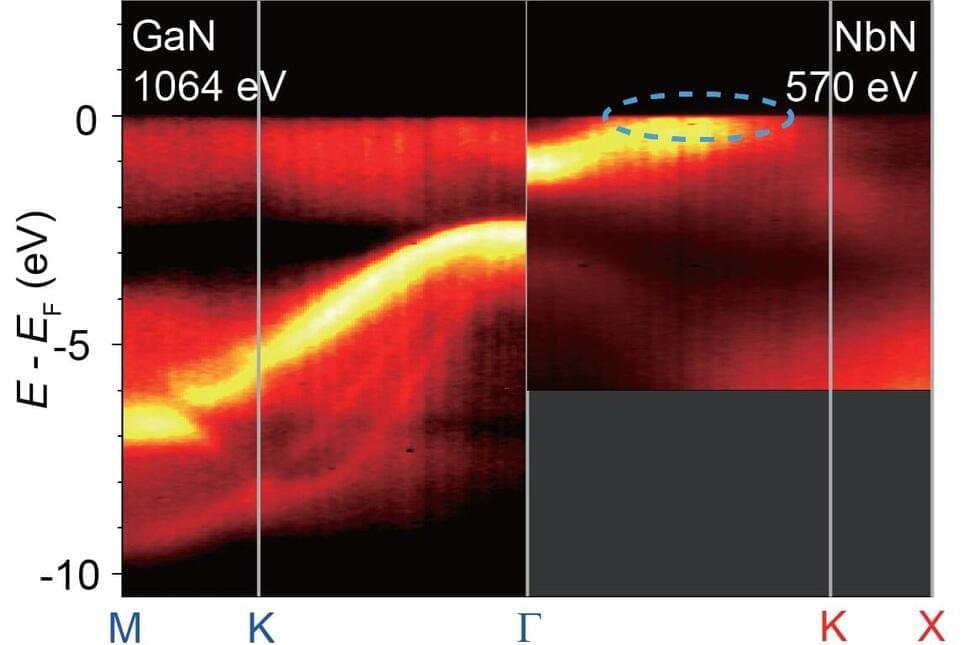Quantum effects in superconductors could give semiconductor technology a new twist. Researchers at the Paul Scherrer Institute PSI and Cornell University in New York State have identified a composite material that could integrate quantum devices into semiconductor technology, making electronic components significantly more powerful. They publish their findings today in the journal Science Advances.
Our current electronic infrastructure is based primarily on semiconductors. This class of materials emerged around the middle of the 20th century and has been improving ever since. Currently, the most important challenges in semiconductor electronics include further improvements that would increase the bandwidth of data transmission, energy efficiency and information security. Exploiting quantum effects is likely to be a breakthrough.
Quantum effects that can occur in superconducting materials are particularly worthy of consideration. Superconductors are materials in which the electrical resistance disappears when they are cooled below a certain temperature. The fact that quantum effects in superconductors can be utilized has already been demonstrated in first quantum computers.
